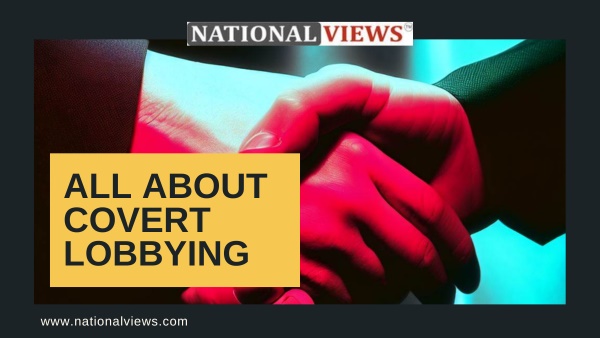In a recent report by the Organized Crime and Corruption Reporting Project (OCCRP), it has been revealed that Vedanta Resources Limited, led by Anil Agarwal, was involved in a covert lobbying campaign aimed at undermining crucial environmental regulations during the Covid-19 pandemic. Wondering what the term actually means? Ok, let’s explore all about it –
What is Covert Lobbying?
Covert lobbying refers to efforts made by individuals, organizations, or interest groups to influence government decisions, policies, or legislation without disclosing their identity or intentions openly. Unlike traditional lobbying, which often involves registered lobbyists and public advocacy, covert lobbying operates behind the scenes and is characterized by secrecy and anonymity.
Covert lobbying can take various forms, including:
Anonymous Donations:
This involves providing financial support to political campaigns, parties, or advocacy groups without revealing the true source of the funds. For instance, an undisclosed corporation secretly donates large sums of money to a political candidate’s campaign.
Astroturfing:
Astroturfing creates fake grassroots movements or organizations that appear independent but are funded or controlled by special interest groups. For example, an industry-funded organization portrays itself as a community group advocating for relaxed environmental regulations.
Front Groups:
Covert lobbyists establish organizations or associations that advocate for specific causes without openly disclosing their true affiliations. An example is an industry-backed association that appears independent but promotes policies favorable to its sponsors.
Proxy Campaigns:
Covert lobbyists use third parties, like public relations firms, to conduct lobbying activities discreetly. A corporation hires a PR firm to advocate for deregulation without revealing its direct involvement.
Bribery and Corruption:
These illegal tactics involve offering bribes or kickbacks to influence government officials or lawmakers secretly. A company bribes a government official to secure a favorable contract without public knowledge.
Information Manipulation:
It can include spreading false or misleading information through various channels, including social media, to shape public opinion indirectly. A particular interest group uses fake news websites to disseminate misleading information about a policy issue.
Also Read: Know All Criminal Cases & Controversies Surrounding Yogi Adityanath, the New UP CM
Is Covert Lobbying Illegal, Unethical and Politically Incorrect?
It is generally considered ethically questionable and can raise significant concerns in terms of transparency and accountability in government. However, whether it is considered “bad,” illegal, or politically incorrect depends on the specific actions taken and the legal and ethical standards of a given jurisdiction.
Here are some key points to consider
Ethical Concerns: It often involves actions that are intentionally hidden from public view. This lack of transparency can undermine the principles of open and accountable government, as citizens may not be aware of the influence being exerted on their elected representatives.
Legal Status: The legality of covert lobbying varies by country and jurisdiction. Some forms of covert lobbying, such as bribery or illegal campaign contributions, are clearly illegal and subject to criminal prosecution. Other tactics, while ethically questionable, may not violate existing laws.
Disclosure Requirements: Many countries have laws that require lobbying activities to be disclosed and registered with relevant government agencies. Covert lobbying efforts that evade these disclosure requirements may be seen as a violation of these laws.
Public Perception: It can damage the reputation of individuals, organizations, or interest groups involved when their actions are eventually exposed. The public often views covert lobbying with skepticism and as an attempt to manipulate the political process.
Political Impact: Covert lobbying can lead to policy decisions that benefit specific interest groups at the expense of the broader public interest. This can erode public trust in government institutions and contribute to perceptions of corruption.
Advocacy and Awareness: Civil society organizations and advocacy groups often work to raise awareness about covert lobbying practices and advocate for stricter regulations and transparency in lobbying activities.
Overall, while covert lobbying may not always be illegal, it is often seen as a practice that undermines democratic principles and transparency in government. The ethical and legal implications of this type of lobbying depend on the specific actions taken and the laws and regulations of the jurisdiction in question.


